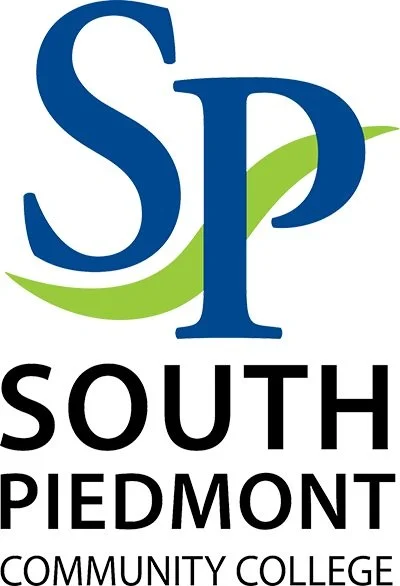
Training
Many firms and companies may have difficulty finding employees with the necessary skills or desired level of company-specific knowledge. Through apprenticeships, employers can reduce operational costs, establish a streamlined channel to find new workers, advance existing workers, build employee loyalty, reduce attrition, and foster new leaders.
South Piedmont Community College (SPCC) partners with local businesses and industry to create apprenticeship and pre-apprenticeship programs that meet the workforce needs of Union and Anson counties. SPCC can assist you in the development, registration, and implementation of an apprenticeship program specific to your company.
Apprenticeship programs provide a highly skilled workforce through classroom instruction and on-the-job training.
An apprenticeship allows students to earn while they learn a highly skilled trade. The program consists of intensive on-the-job training and related classroom instruction provided by SPCC.
8,000 hours of On-the-Job Learning
1,750 hours of Classroom Instruction
Apprentices receive free education while earning a full-time wage that increases as they progress through the program.
At the completion of the program, apprentices will receive a Journey Worker’s Certification, college credits that can be applied towards a diploma or degree, and secure employment with the opportunity to advance.
Apprenticeships Currently Being Offered:
Industrial Maintenance Technician
Machinist
Electrician
Quality Associate
Process Technician
South Piedmont Community College gives students a competitive advantage. Upon graduation, the apprentice will be “work ready” and earning a lucrative starting salary with company benefits.
What can I expect from Pre-Apprenticeship?
Learn the skills needed to get started on a great career track
Experience modern manufacturing firsthand – job shadowing with experienced technicians
Hands-on training to develop technical skills
Potential opportunity to be selected for the Registered Apprenticeship Program (through SPCC)
Program Overview:
Students take morning classes at High School while the afternoon is split between classes at SPCC and working at a partner company.
A student is paid for approximately 20 hours per week, which is a combination of training, attending classes, and work.
Fall Classes at SPCC would begin the fall semester of senior year.
Students receive High School Credit for their Community College Courses.
Provides a potential opportunity to be selected for the Registered Apprenticeship Program.
Provides hands-on training to develop technical skills.
Program Qualifications:
Rising High School Senior
Current GPA must be at least a 2.5. Students must have a minimum 2.8 GPA at Graduation to be considered for the Registered Apprenticeship Program.
Sufficient High School Credits to allow Community College courses in the Senior schedule.
Be able to attend a 3 to 4 week summer program beginning summer between junior and senior year.
Coursework during the Pre-Apprenticeship Program will be designed to work with degree programs. Some of the coursework may include:
Industry Safety
Hydraulics/Pneumatics
Introduction to PLC
ELC/Fluid Power Diagrams
Circuit Analysis I
World of Work
More Information:
Completing the Pre-Apprenticeship program allows students to be selected for the Registered Apprenticeship program for a partner company.
It is a Dual Training system: go to school and work. The hours of work and education will vary from semester to semester; the employee will be paid 40 hours per week to include work time and education time.
UCPS CTE’s mission is to provide all students with rigorous and relevant courses and programs that emphasize applications of theory, problem-solving, and critical thinking and to provide leadership in developing an educated, prepared, and competitive workforce by preparing our students for post-secondary and careers by giving them the 21st-century skills that they need to help them become lifelong learners. Career Readiness also supports student-led organizations that demonstrate academic achievement, technical skills, leadership, and strong community building through productive citizenship.
Today’s job market requires individuals with technical and high-level problem-solving skills. Career Readiness is focused on teaching these attributes through real-world applications in all of the different program areas.
Students have many opportunities in different pathways that will help prepare them for life after high school; whether it be in a four-year university, a two-year community or technical college, or in a career. Through classes offered by CTE, students will gain the technical skills and academic knowledge to prepare for future employment and/or a successful transition to post-secondary education.
According to the CTE Essential Standards, “the mission of Career and Technical Education (CTE) is to empower students to be successful citizens, workers, and leaders in a global economy.” Course sets, called pathways, are developed across eight program areas to best assist students in finding their passion and becoming career and college ready, and further broken into over 36 available pathways.
Program areas include:
Agriculture Education
Business, Finance, and Information Technology
Family and Consumer Services Education
Health Science Education
Marketing and Entrepreneurship Education
Technology Engineering and Design Education
Trade and Industrial Education




